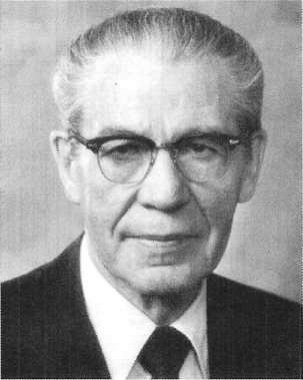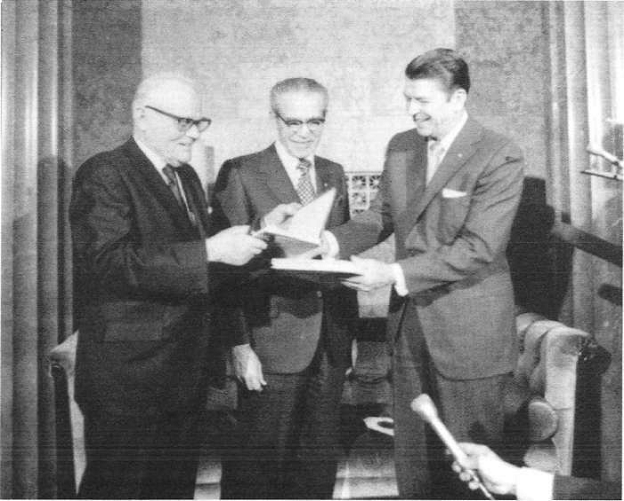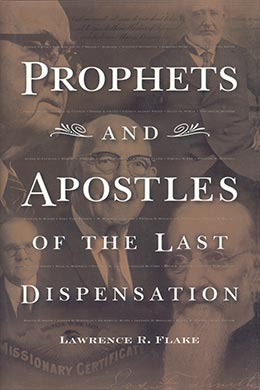Nathan Eldon Tanner
Lawrence R. Flake, Prophets and Apostles of the Last Dispensation (Provo, UT: Religious Studies Center, Brigham Young University, 2001), 223–28.

Born: 9 May 1898, Salt Lake City, Utah
Assistant to the Quorum of the Twelve: 8 October 1960
Quorum of the Twelve Apostles: 11 October 1962 (age 64)
Second counselor to President David O. McKay: 4 October 1963
Second counselor to President Joseph Fielding Smith: 23 January 1970
First counselor to President Harold B. Lee: 7July 1972
First counselor to President Spencer W. Kimball: 30 December 1973
Died: 27 November 1982 (age 84), Salt Lake City, Utah
Nathan William and Edna Brown Tanner were expecting their first child. Their home at the time consisted of a crude dugout in the Mormon colonies of southern Alberta, Canada. Sister Tanner decided to travel the long distance by wagon and train to Salt Lake City to have her baby at the home of her parents. When their newborn son, Nathan Eldon Tanner, was only six weeks old, his mother returned with him to Canada. A frightening experience occurred on this journey homeward—a band of robbers held up the train. Fortunately Sister Tanner and her newborn son were unharmed. “The robbers took all the valuables except my baby,” she told her husband. [1]
On the primitive homestead Eldon learned the rigors of pioneer life. He drove a four-horse team at the age of twelve, cared for livestock, and nursed his entire family back to health when all of them but him had smallpox and no one else would come near their disease-infested home. Strengthened by hardships, he was determined, in spite of his difficult circumstances, to acquire an education. In 1919 he received a normal certificate from a school in Calgary and accepted his first position as principal of a three-room school at Hill Spring. There he fell in love with one of the teachers, Sara Isabelle Merrill, whom he married in December of that same year. They were blessed with five daughters.
Elected somewhat against his personal desires to the Alberta legislature in 1935, Eldon Tanner began a career of political and economic prominence in Canada. He became speaker of the legislature and from that position was called to be in the provincial government cabinet as Minister of Lands and Mines. In this capacity he began a remarkable conservation program and did much to shape the legislation and direction of Canada’s rapidly expanding resource consumption. Again at the request and persuasion of others, he reluctantly accepted the enormous responsibility of heading the Trans-Canada Pipeline, Ltd., a merger company that was contracted to build a pipeline from Calgary to Montreal. Because of the legal and political ramifications of such an endeavor, its instigators felt that Eldon Tanner was the only man who could bring divergent interests together and accomplish the task. Despite great difficulties, including the need to raise $300 million to finance the project, the pipeline was completed and operating successfully at the end of Brother Tanner’s five years as the company’s president.
 Presidents Marion G. Romney and N. Eldon Tanner of the First Presidency with U.S. President Ronald Reagan
Presidents Marion G. Romney and N. Eldon Tanner of the First Presidency with U.S. President Ronald Reagan
Always diligent in his Church responsibilities, Elder Tanner served as a bishop in Cardston, branch president in Edmonton, and as a stake president in the Calgary Stake for seven years. While serving as deacon’s quorum adviser in his Cardston ward, he showed his great talent for dealing with the youth by drawing one hundred percent of the deacons into activity. He visited the homes of the inactive quorum members to discover why they had not been coming. Some of them did not have the proper clothing and were embarrassed to attend meetings. His great sensitivity was manifest when by mutual agreement the boys and Brother Tanner wore coveralls to their priesthood meetings on Sunday mornings. It was no wonder that they grew attached to their sensitive and dauntless leader. Even though his own children were all girls, Brother Tanner rendered generous and willing service to the Boy Scouting programs of the Church and Canada.
When Brother Tanner was asked to serve as president of the pipeline company, an incident occurred that showed that his Church callings meant more to him than his public or professional endeavors. The backers of the pipeline company planned to set up headquarters in Toronto. Because of his calling as president of the Calgary Stake, he refused to leave that city to act as president of the operation. The company owners therefore decided to set up headquarters in Calgary instead, in order to avail themselves of his superior leadership. [2] Since much of the company’s business was transacted in eastern Canada, the priority he gave to staying in Calgary cost him many long hours of flight, most often overnight to Toronto. [3]
In 1960 the Tanners had just completed and moved into a beautiful new home overlooking their three-hundred-acre farm in the Canadian Rockies. But when a call came to Brother Tanner in October of that year to serve as an Assistant to the Twelve, they left their home without a backward glance, saying, “It’s just a home. Weil go where the call requires.” [4] In Salt Lake City they bought another home and ordered furniture for it, but with only four days’ notice the family again abandoned their plans, for Elder Tanner was appointed president of the West European Mission. They moved their family to the mission headquarters in London. [5]
Two years later Brother Tanner became a member of the Quorum of the Twelve, and only one year after that he was chosen as second counselor in the First Presidency under David O. McKay. In 1970 he was chosen to serve as counselor to Joseph Fielding Smith, and in 1972 to Harold B. Lee. In 1973 when Spencer W. Kimball became president of the Church, Elder Tanner again was chosen as a counselor in the First Presidency, thus having the distinction of serving as a counselor to four presidents within a three-year period. When Elder Tanner was initially called to serve in the First Presidency, he felt inadequate because of the short length of his service in the Quorum of the Twelve—only two years. He told his daughter Ruth, “Others, like President Harold B. Lee and President Marion G. Romney, had twenty-five years of Church experience while I was out fighting the world all the time, in business or industry or government, trying to keep my head above water.” Yet these brethren graciously accepted him in this high calling. He said, “I’ve expressed my love and appreciation for these men many times for the way they supported and helped me when there could have been great jealousy and opposition.” [6] As an apostle, Elder Tanner was assigned leadership over the Genealogical Society of the Church. As a member of the First Presidency, he rendered invaluable service in the financial matters of the kingdom. By the time he died at the age of eighty-four, President Tanner had been involved in almost every aspect of the Church, both temporal and spiritual. [7]
At his passing, the First Presidency issued a statement that included these words: “He has carried much of the burden of administration during these many years. His wisdom and inspiration have been of incalculable benefit as the Church has moved forward with its divinely appointed mission. None has been more steadfast in carrying the responsibilities of high office. None has been more faithful in execution of duty. His unflinching testimony of God the Eternal Father and the risen Lord Jesus Christ has been a strength to millions over the earth. Our close association has been a warm and beautiful experience. Oh, how we shall miss him.” [8]
Notes
[1] J. M. Heslop, “Pres. Tanner—Life of Service,” Church News, 17 November 1973, 3.
[2] G. Homer Durham, N. Eldon Tanner: His Life and Service (Salt Lake City: Deseret Book, 1982), 146–48.
[3] Durham, Life and Service, 161–62.
[4] “N. Eldon Tanner,” Improvement Era, November 1963,935.
[5] Durham, Life and Service, 184–86.
[6] Durham, Life and Service, 202.
[7] Durham, Life and Service, 195, 207, 216.
[8] The First Presidency, “President Tanner—We Shall Miss Him,” Church News, 4 December 1982, 2; “President N. Eldon Tanner Dies: A Man of Faith, Integrity, Service,” Ensign, January 1983, 6–13.
